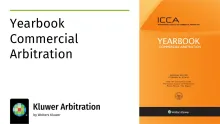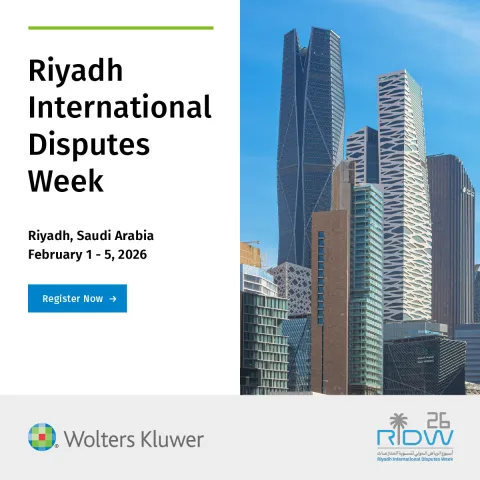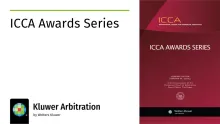Annulment of Awards Under the Komstroy Principle in "Mixed" Investment Arbitrations: The Swedish Supreme Court Renders a Clarifying Ruling
August 7, 2025
The Court of Justice of the European Union (“CJEU”) ruled in Komstroy (C-741/19, Sept., 2021) that the dispute resolution mechanism of the 1994 Energy Charter Treaty (“ECT”) does not apply to intra-EU investment treaty arbitrations ("ITA"). The ruling has been followed by several successful annulment actions against intra-EU awards, including in Sweden (one of which was discussed in a previous blog post).
A recent ruling from the Swedish Supreme Court clarified the Swedish position on annulment of awards rendered in "mixed" investment arbitrations (i.e. involving both EU and non-EU claimants). The key issue was whether the award in question should be annulled in its entirety or only to the extent relating to EU investors.
The Swedish Supreme Court concluded that this depends on the res judicata effects of the award. As detailed below, the court found that partially annulling the award is inappropriate if it means that the binding effect of the "remaining" (non-annulled) part would prevent retrying the annulled part in another forum.
Facts of the Case
Five investors owned shares in a joint venture called Blue Gas Holding. Blue Gas Holding made investments in the Polish energy sector. Four out of the five investors were domiciled within the EU, whereas one was domiciled outside of the EU (in Switzerland).
In 2018, the investors commenced arbitration under the Arbitration Rules of the Stockholm Chamber of Commerce (SCC) against Poland, alleging breaches of the ECT consisting of various actions by the Polish government purportedly rendering the investments worthless.
A tribunal was appointed consisting of Bernardo M. Cremades (Chair), and co-arbitrators Kaj Hobér (appointed by the investors) and Zachary Douglas KC (appointed by Poland). The tribunal rendered its award in 2021 rejecting the investors' claims. The tribunal also ordered the investors to (jointly and severally) bear the costs of the arbitration.
After the award was rendered, the investors applied to the Swedish appellate court (Svea Court of Appeal) to annul the award. The investors cited the Komstroy case, arguing that the award was invalid due to being contrary to mandatory EU law. The case eventually came before the Swedish Supreme Court, which analyzed whether the award (i) was invalid and (ii) should be annulled in its entirety or "only" partially.
Summary of the Swedish Supreme Court's Assessment
The Swedish Supreme Court declared the intra-EU part of the award invalid. This was arguably the most unsurprising part of the ruling. The fact that this is the law of the land has been confirmed by Swedish courts on several prior occasions. Arguably, no member of the pro-ITA community had any hopes for another outcome.
Perhaps somewhat less clear was the Komstroy ruling's impact on arbitrations where the claimant(s) are non-EU investors. On this issue, the Supreme Court confirmed that the general rule is that Komstroy does not affect the validity of an award between an EU state and a non-EU investor. In other words, awards rendered in investment arbitrations seated in Sweden between an EU Member State and a non-EU investor are generally valid irrespective of Komstroy.
On the issue of partial invalidity of "mixed" ITA awards, the Supreme Court held that the court—in cases where partial invalidity is on the table—must always consider whether the basis for invalidity affects the entire award in a way that prevents partial annulment. The court further stated that this assessment should consider the significance that the remaining part of the award would have for the party's possibility to retry its claim in another forum.
In the Supreme Court's words (para. 15), "[i]f the remaining part would prevent a new assessment because of res judicata [author's translation]," the annulled part and the remaining part cannot be separated in the manner that is required to allow partial annulment. The Supreme Court concluded that, in the present case, such separation was possible and partially upheld the award.
Res Judicata as a Tool for Upholding (or Annulling) a "Mixed" Award
The ruling by the Supreme Court offers helpful clarity regarding to what extent a "mixed" award should be upheld if challenged under the Komstroy principle. However, the ruling also leaves questions unanswered.
One such question concerns the legal standard to be used when determining the scope of a partially annulled award's res judicata effect in relation to subsequent legal proceedings. The Supreme Court stated as follows on the standard to be applied (para. 15):
“The general Swedish principles of res judicata in civil proceedings should as a rule be applied. However, if it is claimed that the new examination will take place under a legal system other than the Swedish one, there may be reason to consider the principles of res judicata under that legal system [author's translation]."
This statement gives rise to questions. Firstly, what the Supreme Court describes as the exception (the second sentence) is arguably the general rule in investment arbitrations seated in Sweden. Unless Sweden is the host State (which very rarely happens), the investor will generally need to resort to local remedies of States other than Sweden for recourse. It is also unclear what exactly the Supreme Court meant by stating that the principles of such a local jurisdiction should be "consider[ed]."
At the same time, it is easy to sympathize with the Supreme Court's standpoint because there are no obvious alternative approaches that would be preferred. One alternative approach would have been to fully rely on Swedish domestic principles on res judicata and disregard the law of any jurisdiction(s) where the case might be retried. However, such an application may come across as surprising, particularly to parties to an investment arbitration whose only connection to Sweden is the seat.
Another option would be to rely on transnational principles on res judicata. However, this approach would also be problematic since it is unclear whether any such universally applicable transnational principles exist and, if so, what their contents are.
The result became a sort of middle ground between these two extremes. This may very well have been the "least bad" solution. Nevertheless, it may also lead to increased complexity because it opens a venue for parties to challenge (or defend) an award based on the law of local jurisdictions. Put differently, Swedish courts may, following this precedent, be faced with having to assess evidence submitted by the parties on the law of any local jurisdiction where a new case may be brought claiming that the case can (or cannot) be retried.
Despite this, in its analysis of the case at hand, the Supreme Court did not clarify to what extent (if any) it relied on the law of the host State (Poland) in its decision to partially uphold the award. It simply concluded that (para. 25):
“Overall, nothing has emerged to suggest that the other investors' ability to obtain a new examination of their claims against Poland would be affected by the award remaining in force insofar as it concerns the relationship between [the non-EU investor] and Poland [author's translation].”
Because the Supreme Court refrained from expressing itself in absolutes, it is currently unclear how much weight should be attributed to the contents of local law in the end. Whether and to the extent to which this will cause problems in future annulment cases remains to be seen.
Conclusion
The Komstroy saga has undoubtedly caused the demise of intra-EU ITAs seated in Sweden. Any award rendered in such an arbitration is highly likely to be invalid. The Swedish Supreme Court's ruling in Blue Gas Holding clarifies that this, however, is not the case if the host State is an EU member State and the investor is domiciled outside of the EU. Such awards are generally valid.
In "mixed" arbitrations, the key determining factor as to whether the award will be invalid in respect of the part affecting the non-EU investor is the EU-investor's possibility to bring its claim against the host State again. Assessing this requires analysis of Swedish law on res judicata and (potentially) also the law of the EU member State where the investor would bring suit.
You may also like










